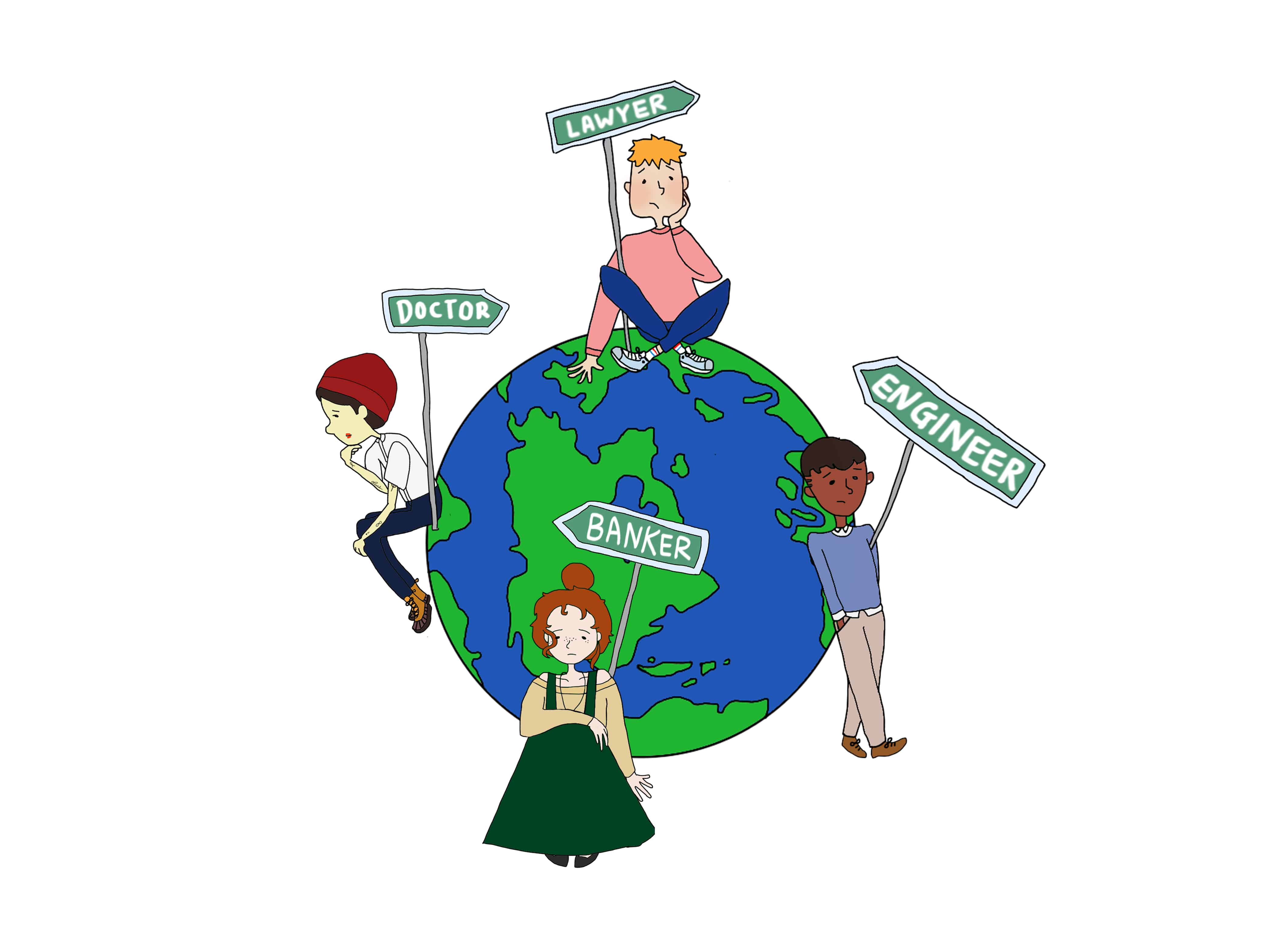“They wanted something better,” Maria Qamar said in an episode of CBC Campus, discussing her parents’ decision to immigrate to Canada. “They could see [staying in Pakistan] not being a brighter future for us.”
Qamar is a Toronto-based pop artist, better known by her online persona ‘Hatecopy.’ Her art, which is published online on Instagram (@hatecopy), focuses on Desi cultural themes.
In the CBC Campus podcast, Qamar outlined her experiences as a Pakistani immigrant and how they facilitated her interest in art. Qamar faced family barriers to pursuing art as a career, as her parents did not allow her to follow this course of study.
“My love for art was literally always a secret from my parents, ever since they denied me the right to become [an artist],” she said.
Qamar’s story is not unique, as many students continue to face family pressures in respect to their post-secondary education decisions; this is especially true for first-generation Canadian students.
Considering that our choices as students significantly affect our careers and life paths, it is unfortunate that these pressures continue to play such a significant role. Students should be able to pursue what they are truly interested in.
My parents had established lives and careers in India and Bangladesh before immigrating to Canada in 1989. Here, my mother’s degree from the University of Dhaka isn’t recognized — upon her arrival in Canada she had to take an entry-level job in order to support my siblings and me.
As a first-generation Canadian, you constantly hear of your parents’ sacrifices and, consequently, are instilled with feelings of debt and gratitude.
Parents will often steer their children towards a degree or program of study with a straightforward career path and visible opportunities to make money. In general, no parent wishes to see their child fail in life.
However, there is added burden placed on first-generation Canadians to validate the decisions and struggles that led their parents to leave their home country. There is an expectation placed upon many children of immigrants to study, get into an acclaimed university, and eventually have a stable, well-paying career.
Much of the time, these expectations can be rigid, allowing very little room for choice. For instance, when Qamar’s mother caught her drawing rather than studying, she told her daughter, “We didn’t bring you into this country for this.”
The cultural barrier between first-generation Canadians and their parents is also often a significant factor in their relationships, which can affect immigrant parents’ ideas of the opportunities that are available to students. In Qamar’s case, the opportunities she wanted to pursue working in animation did not exist in Pakistan, where her parents grew up.
In my own experience, Desi communities tend to place high importance on theoretical education, emphasizing the need to pursue a university degree in a practical field that allows students to make enough money to support the hypothetical families that are expected following graduation.
Many first-generation Canadians are the first in their families to attend a North American university. This represents a whole new experience, not just for the student but for everyone in their family. Given that immigrant families are often unfamiliar with the courses of study offered at North American universities and the careers that they may lead to, they may limit their children’s opportunities by expecting them to pursue a familiar path. This often contradicts the reasons families may have chosen to immigrate to Canada in the first place: to provide opportunities for their children that were not available at home.
This troubled situation is often complicated further by finances, as parents may be a source of financial support for tuition and other expenses. Qamar’s parents were willing to pay for her college tuition, but not if she chose to study art. As a compromise, Qamar decided to enrol in Seneca College’s creative advertising and business program, in order to continue pursuing her interest in art and satisfy her parents’ expectations of studying business.
Qamar’s compromise is exemplary of what students should do when confronted with such family pressures: take family perspectives into account but find a situation that ultimately works for them. At U of T, there are numerous interdisciplinary programs that offer students the opportunity to pursue what they are interested in while also learning practical skills that satisfy their parents’ wishes.
Additionally, there are numerous extracurricular opportunities for students to pursue their passions. For budding writers, for example, there are numerous student publications on campus, including The Varsity, that allow students to pursue this interest, despite perhaps being enroled in a program that better satisfies their family’s expectations.
That said, taking family values into account does not necessarily mean that a student is required to find a middle ground or a point of compromise. Wherever possible, students should continue to pursue what they are interested in by any means available. By doing so, we may exercise our own agency while being mindful of opportunities that our families have granted us — this is certainly not an indication that we take those opportunities for granted.
Avneet Sharma is a second-year student at Trinity College studying English and Book and Media Studies. His column appears tri-weekly.


